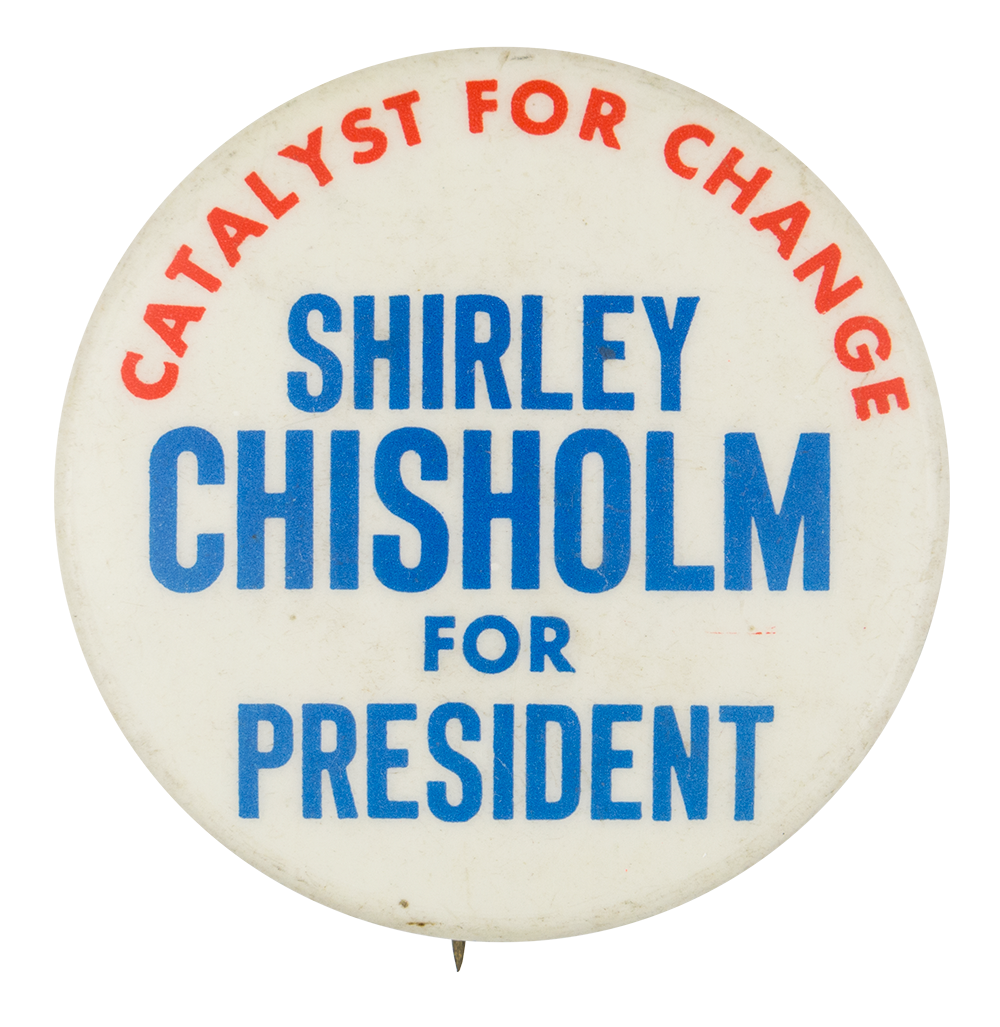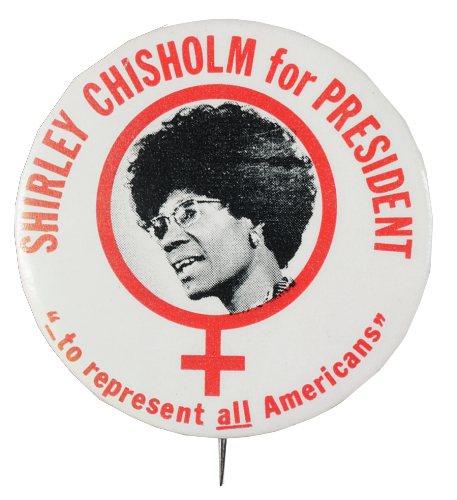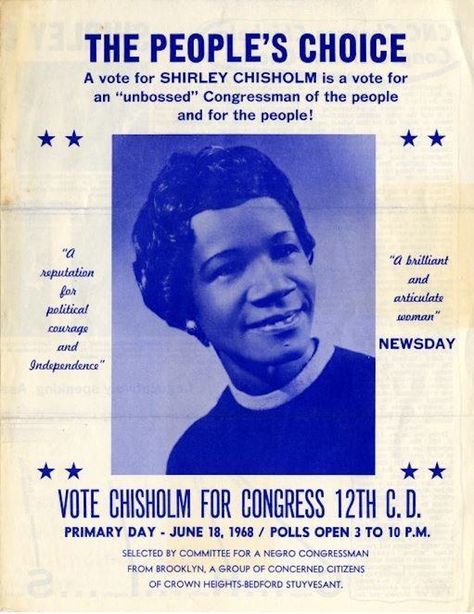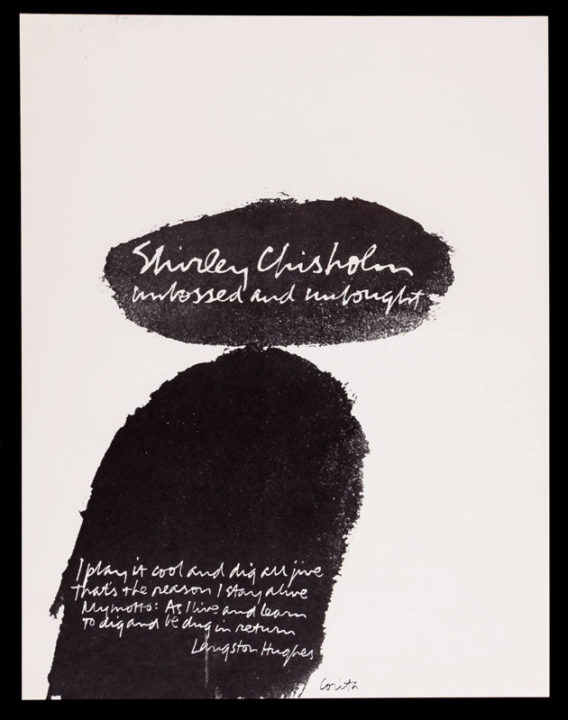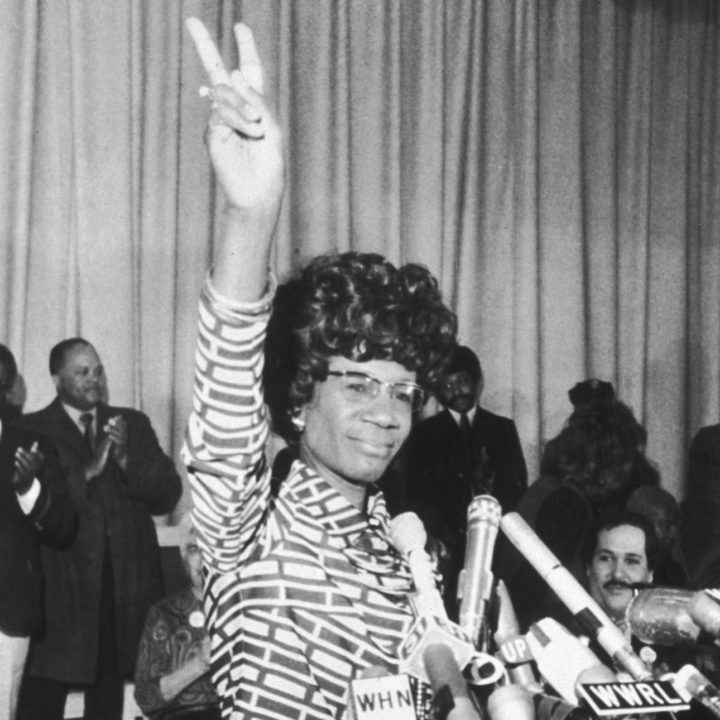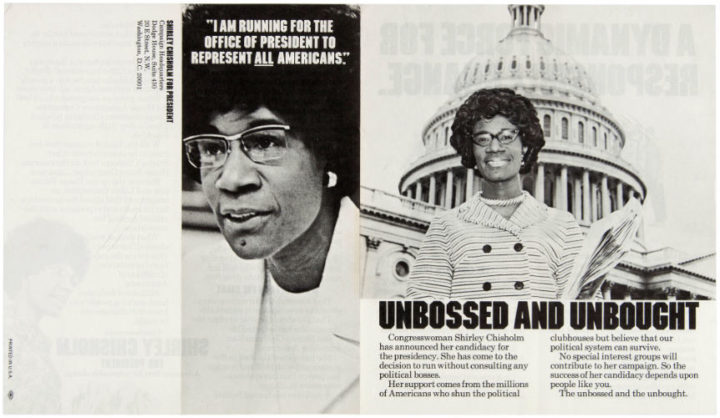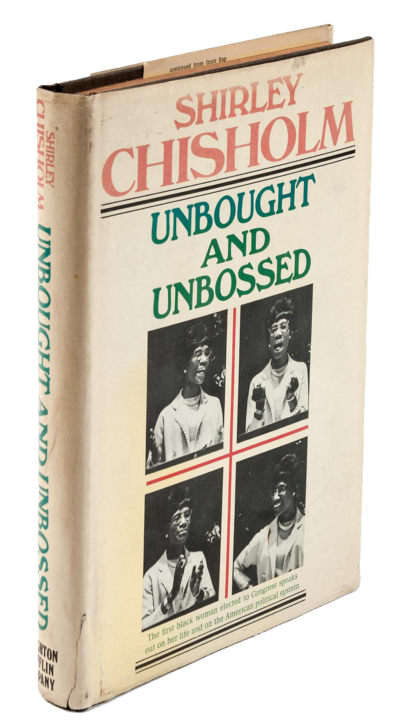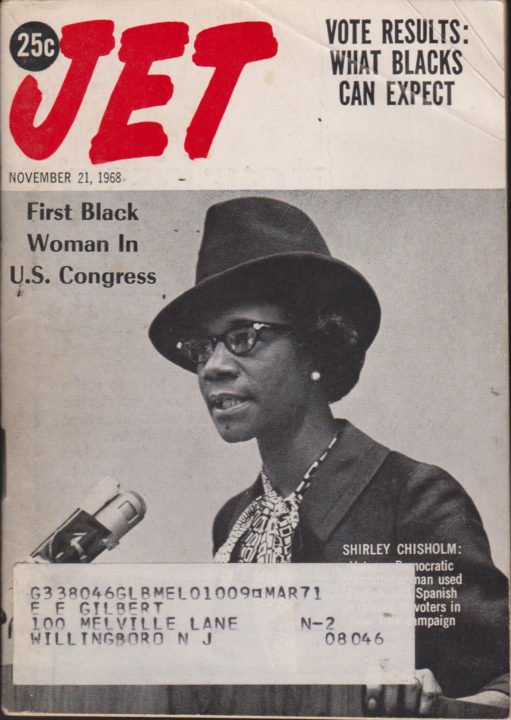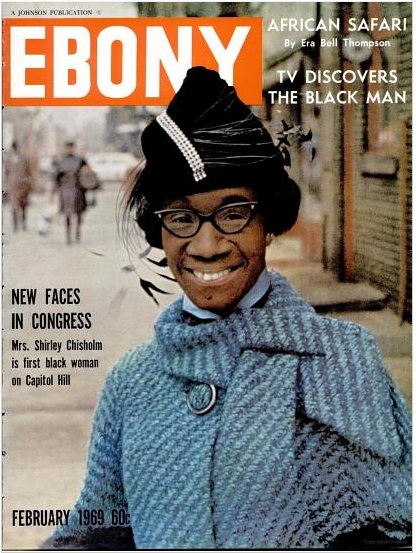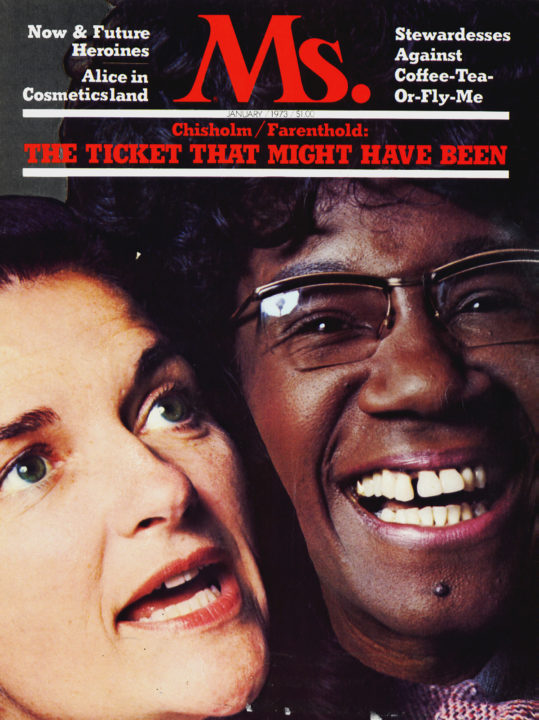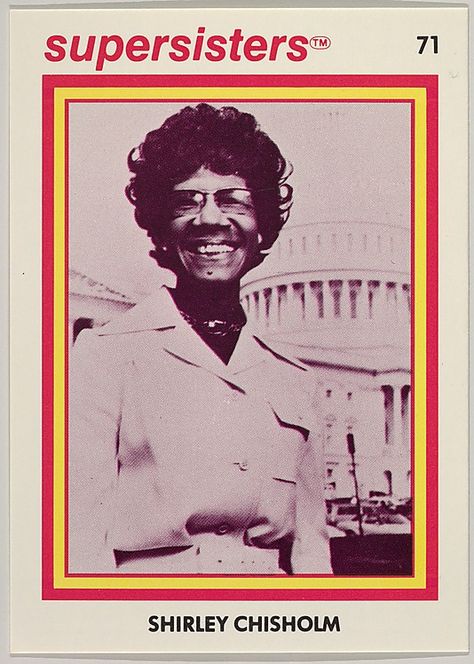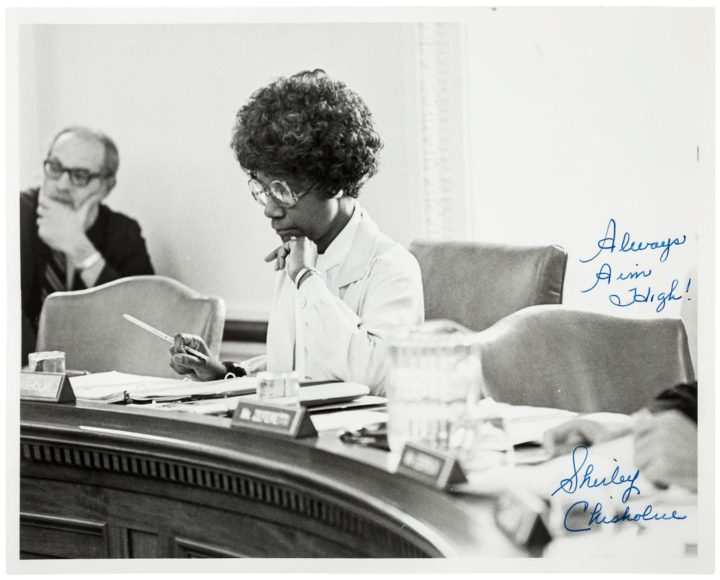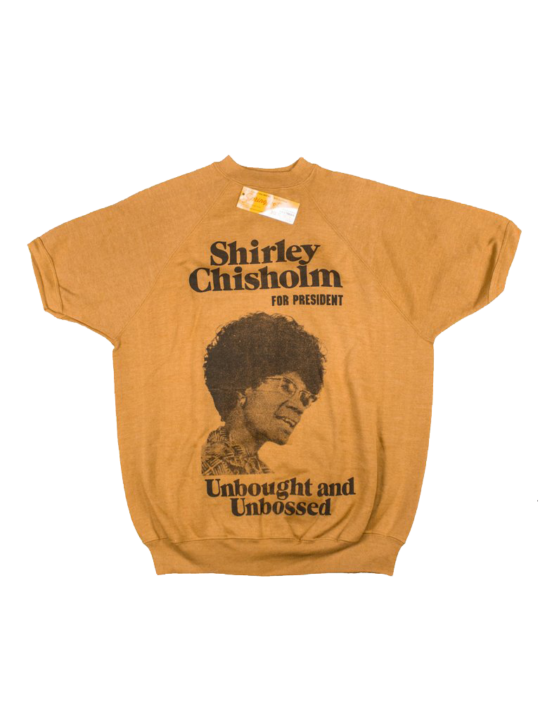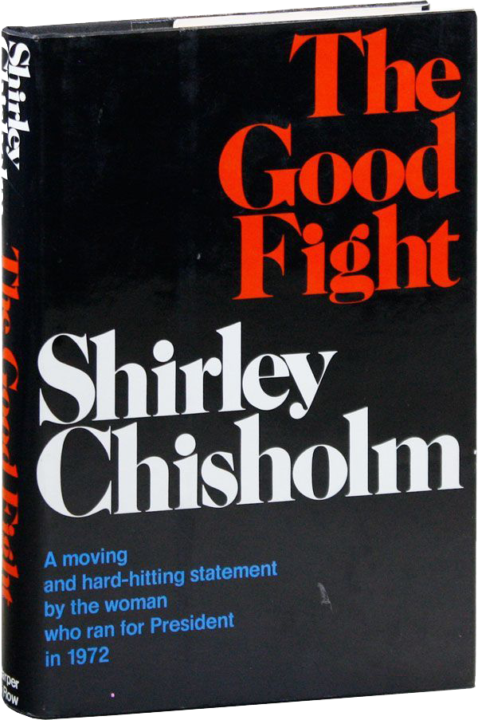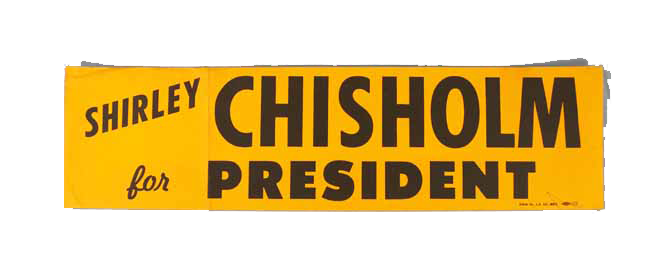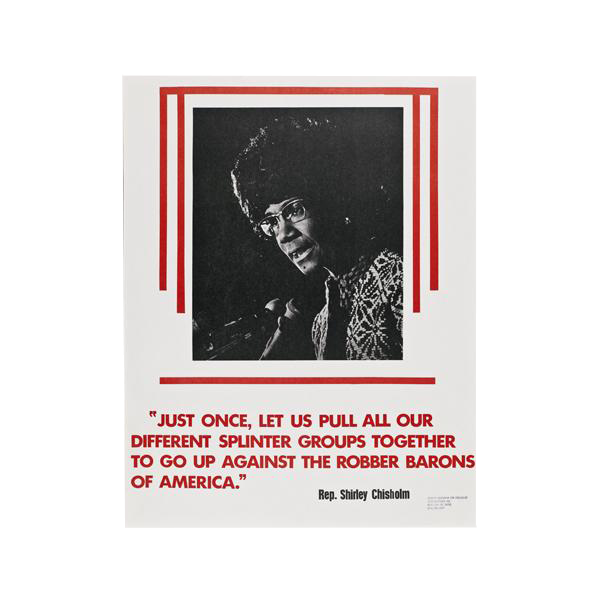"Health is a human right, not a privilege to be purchased"
“The U.S. spends about twice what other high-income nations do on health care but has the lowest life expectancy and the highest infant mortality rates [amongst those
high-income nations].”
– Reuters Health
In hopes of helping slow the spread of COVID-19, the Non-Breaking Space gallery at the front of our studio has been closed temporarily. Our boarded-up windows now display a quote from Shirley Chisholm, a woman who spent her life fighting for justice and change. This crisis is exposing the flaws, inequities, and corruption inherent in our economic, political, and healthcare systems. No matter who you are, you have a right to health care.
“If they don’t give you a seat at the table bring a folding chair.”
– Shirley Chisholm
In 1964, at the age of 40, Shirley Chisholm became the second African American in the New York State Legislature. During this time she introduced more than 50 pieces of legislation and fought for racial and gender equality, the rights of low-income communities, and bringing an end to the Vietnam War. In 1968 Shirley Chisholm ran and became the first African American woman elected to Congress.
In 1972 she became the very first African American woman to seek the nomination for president of the United States from a major party. Her slogan was, “Unbought and Unbossed.”
In her speech announcing her run for president she declared, “I am not the candidate of black America, although I am black and proud. I am not the candidate of the women’s movement of this country, although I am a woman and I’m equally proud of that. I am not the candidate of any political policies or fatcats or special interests. I stand here now, without endorsements from many big name politicians or celebrities or any other kind of prop, I do not intend to offer you the tired clichés that have too long been an accepted part of our political life. I am the candidate of the people of America.” In that same speech, she called for an end to the “abuse of our environment,” she railed against big money in politics, racial, and class discrimination, and she called for a government that would ensure “everyone medical care and employment and decent housing.” (Video of speech/Transcript of speech)
“When reality comes up against profit, it is seldom that profit loses.”
– Shirley Chisholm
Her campaign materials were regularly vandalized with racist and sexist messages, she survived numerous assassination attempts, and her candidacy was laughed off by the establishment in a race, like all before, that was dominated by all white men. She was blocked from participating in televised primary debates, and after seeking legal action, was permitted to make just one speech.
Faced with unbeatable odds, why did she run? In her own words, “I ran because somebody had to do it first.” And according to those close to her, she ran in hopes of gathering enough delegates to form a coalition in which she could negotiate with the winning Democratic candidate in favor of rights for women, black Americans and indigenous people. Despite everything she faced, she earned 152 of the delegates’ votes (an incredible 10% of the total).
In January 2019, when Senator Kamala Harris first entered the primary race, her campaign design paid homage to Shirley Chisholm’s campaign through the use of red and yellow, and typographic choices in her brand system and promotional materials. Shirley Chisholm’s struggle to garner votes even from her supporters draws other parallels with the 2020 democratic primary. In 1972 one woman, wearing a “Chisholm for President” button, told the Tucson Daily Citizen, “I would like to be able to afford a vote for Shirley Chisholm, but I can’t. I want someone who will beat Nixon.”
According to The American Women’s Almanac, of her legacy, Chisholm said, “I want to be remembered as a woman …who dared to be a catalyst of change.”
“Take the Chisholm Trail”
– Shirley Chisholm campaign slogan
In gathering the accompanying set of visual materials, we were unable to determine credits for all of the designs. During our research we found that during Shirley Chisholm’s seven terms in Congress, she hired an all-female staff, half of whom were Black women. Her campaign was equally as diverse and full of women.
Of those working on the campaign, Robert Gottlieb is partly credited with having a key role in the design of Shirley Chisholm’s campaign poster (seen above bearing the “Unbought & Unbossed” slogan). At the time, Robert was a 21-year-old student at Cornell University who became Shirley Chisholm’s congressional intern in Washington, D.C. and worked on her presidential campaign.
Artist Ed Wong-Ligda is credited with helping to conceptualize, design, and print the “Outrageous” poster. In an interview from 2015 Ed states, “A Sunset magazine editor, a radical playwright and I created all printed materials for the campaign. Some of it was simply reproducing literature from the national office and some of it was created by us especially for San Francisco.”
We would welcome any additional information you may have on the designers behind these incredible works.
Additional Resources
DOCUMENTARY – Chisholm '72: Unbought & Unbossed
Director: Shola Lynch
Year Created: 2004
Run Time: 1 hr 16 mins
Watch free on Kanopy by logging in with your library card number.
Recalling a watershed event in US politics, this Peabody Award-winning documentary takes an in-depth look at the 1972 presidential campaign of Shirley Chisholm. Official Selection at the Sundance International Film Festival and the SXSW Film Festival.
WatchTV SHOW – Mrs. America
9 episode series
Released April 2020
Shirley Chisholm played by Uzo Aduba
Created by FX – Available to watch on HULU
Mrs. America tells the story of the movement to ratify the Equal Rights Amendment (ERA), and the unexpected backlash led by a conservative woman named Phyllis Schlafly, aka “the sweetheart of the silent majority.” Through the eyes of the women of the era – both Schlafly and second wave feminists Gloria Steinem, Betty Friedan, Shirley Chisholm, Bella Abzug and Jill Ruckelshaus – the series explores how one of the toughest battlegrounds in the culture wars of the 70s helped give rise to the Moral Majority and forever shifted the political landscape.
WatchARTICLE – Want to Become the Next U.S. President? Change the Color of Your Logo
Writer: Billie Muraben
Date Published: 2.6.19
An in-depth look into the symbolism of Kamala Harris’ campaign design.
ReadINTERVIEW – The Making of the Shirley Chisholm “Outrageous!” Poster
Interview by Robert Newman with artist Ed Wong-Ligda
Date Published: 4.29.15
A short interview with artist, Ed Wong-Ligda, who is credited with working on the design of most of Shirley Chisholm’s San Francisco presidential campaign materials.
ReadVISIT – The Shirley Chisholm Project Archives
Location: Brooklyn College Library Archives & Special Collections; Brooklyn, NY
Forty-three boxes of original materials from Shirley Chisholm’s 1972 presidential run are available for viewing and research. The archive includes rare ephemera, handwritten notes, photographs, newspapers, magazines, posters, fliers, and audio files. We hope to one day visit these archives when traveling is allowed.
BrowseMore than 7 million Americans are expected to lose their health insurance during the coronavirus pandemicNewsweek, 4/8/20

